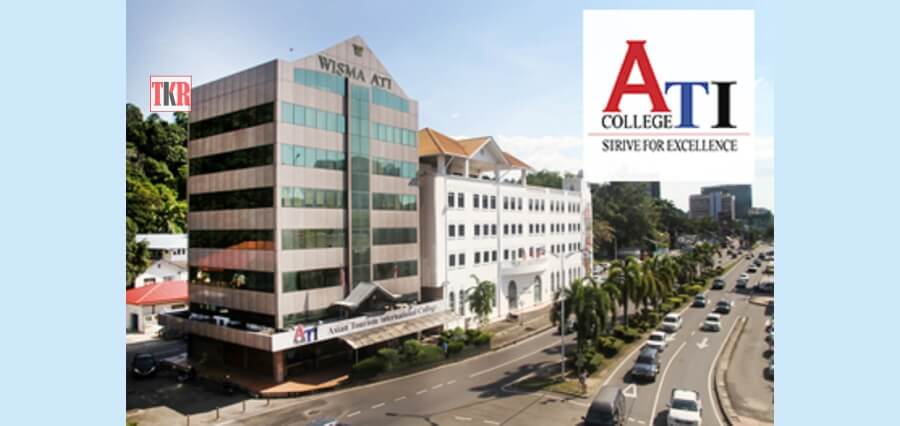In the last few decades, the hospitality and tourism business has risen by leaps and bounds. We are all travellers at heart, and the hospitality and tourism industries have worked hard to make our travel simple, enjoyable, cost-effective, and safe. The Covid-19 pandemic has back lifted this sector for the past two years. However, the world is recovering from its devastating waves and this sector is regaining its previous status. The ease of restrictions resulted in the expansion of the hospitality and tourism industry, and it requires more professionals to serve the industry.
But this wasn’t the story a few decades ago. This sector was very underrated and neglected for many years. But the effect of globalization uplifted this sector and created new career opportunities requiring skilled professionals in the tourism and hospitality industry. Hence, there was a need to provide education and qualification for the young generations in the industry.
Foreseeing this need, Asian Tourism International College (ATI College) started its journey in the year 1996. It was the only college specializing in hospitality and tourism studies in Sabah earlier. Many students from various nationalities and all walks of life entered the college. They have taken up either diploma qualification or skills qualification, and till date, the college has produced about 15,000 graduates in the industry.
The Mission
ATI College works for its mission of becoming a premier college recognized nationally and globally for its excellence in the creation of highly creative and innovative graduates. The college is committed to providing skills and education to all students, irrespective of race, religion, nationality, creed, gender, or age.
About ATI
ATI College prides itself for being the pioneer of providing homegrown academic qualifications to locals Sabahans, which provides them the opportunity to compete in this fast-paced world and to be a part of the global workforce. What makes this institution stand apart from others is the ability of this college to be the first to embrace and implement new teaching-learning methods in Sabah. These methods greatly benefit the local population as they are able to experience the learning methods applied by many advanced countries.
During the two-year period at ATI College, students are exposed to industrial experiences, which provides them the opportunity to know the demands of the industry. This, in turn, flourishes their skills and knowledge. In addition to this, they are provided with a 6-month industrial training in an actual field, which gives them the opportunity to apply the skills they have learned in college. It also helps them become employable as soon as they are ready to join the industry.
At ATI College, students are prepared for both local as well as international participation. For this, various teaching and learning methodologies are implemented. The college prides itself on community-based learning methodology, where students connect what is being taught in the classrooms to their surrounding communities. It includes local institutions, their history, literature, cultural heritage, and the natural environments.
This enables students to foster their critical thinking skills, ability to put into practice what was learned and more in tuned with current community/market need. This teaching methodology is in collaboration with industry players as part of their Corporate Social Responsibility Program. Indirectly it also builds student networking with industry players.
Adopting the New Technologies
The ability of ATI college to adapt to the changes in learning methods without any problem has ensured the quality of delivery is maintained. The introduction of learning management system for online learning, hybrid learning, partnerships with local industry players has enabled students to continue their studies without any need to put on hold classes or leave their locality, where they reside, to continue their studies at ATI College.
This ensured that students were still on track with the time is needed to complete their studies. Since the implementation of lockdowns in early 2020, both lecturers and students adapted well to the change with minimal problems while at the same time welcoming new methods in teaching and learning brought in by the use of educational technologies available.
Inspiring Leadership
Mr. Marcus Aurelius Solibun is the Assistant Chief Executive Officer and Dean of ATI College with a vast and in-depth knowledge of higher education policy and administration. He streamlined the programs of the college in conformation with the strict requirements of the Malaysian Qualification Agency (MQA) as well as the Ministry of Education.
One of the most notable changes he has made is to have an equal, fair assessment of students’ knowledge, not only through the written exam but also through experiential learning and practical hands-on assessment. His goal is to ensure that each graduate from ATI College will be confident and industry-ready by the time they have graduated.
Awards and Accolades
The focus on the quality development of its programs has led ATI College to win numerous awards, including 5-Stars by the Malaysian Qualification Agency (MQA), which is a government body that has oversight of all higher education development in Malaysia. ATIC is also certified as ISO 9008-2014 since 2014, ISO 9014-2015 since 2018. These awards and certifications are a strong indication of ATI College’s commitment to providing the best quality in students’ education and support of their studies.
Scaling the Future
Like many other educational business establishments, the ATI college aspires to continue making its marks in Sabah as well as on an international level. With the adaption experience of educational technologies in 2020, the college is now working towards establishing an ODL private university in collaboration with the government. The college strongly believes that usage of educational technology witnessed by many educational establishments will be the new norm in the educational industry for many years to come.









